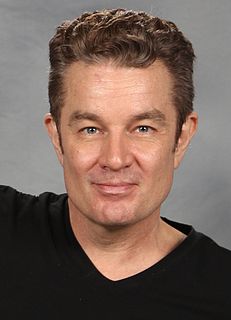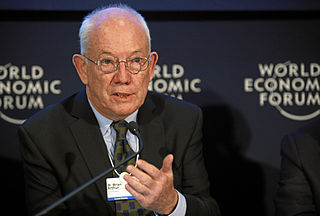A Quote by Nassim Nicholas Taleb
They think that intelligence is about noticing things are relevant (detecting patterns); in a complex world, intelligence consists in ignoring things that are irrelevant (avoiding false patterns)
Related Quotes
There are only patterns, patterns on top of patterns, patterns that affect other patterns. Patterns hidden by patterns. Patterns within patterns. If you watch close, history does nothing but repeat itself. What we call chaos is just patterns we haven't recognized. What we call random is just patterns we can't decipher. what we can't understand we call nonsense. What we can't read we call gibberish. There is no free will. There are no variables.
There is a difference between our wisdom and nature's simplicity. That reflects the burden of a complex intelligence. A complex intelligence like ours is impotent compared to the intelligence of a monarch butterfly migrating from Canada to Mexico, or the intelligence of hummingbirds that have co-evolved with the flowers all along their migration route. That seems so simple; it just happens, it just unfolds.
Complexity is looking at interacting elements and asking how they form patterns and how the patterns unfold. It's important to point out that the patterns may never be finished. They're open-ended. In standard science this hit some things that most scientists have a negative reaction to. Science doesn't like perpetual novelty.
I think whatever nation or whoever develops one artificial intelligence will probably make it so that artificial intelligence always stays ahead of any other developing artificial intelligence at any other point in time. It might even do things like send viruses to a second artificial intelligence, just so it can wipe it out, to protect its grounds. It's gonna be very similar to national politics.
If we consider the actual basis of this information [i.e., intelligence], how unreliable and transient it is, we soon realize that war is a flimsy structure that can easily collapse and bury us in its ruins. ... Many intelligence reports in war are contradictory; even more are false, and most are uncertain. This is true of all intelligence but even more so in the heat of battle, where such reports tend to contradict and cancel each other out. In short, most intelligence is false, and the effect of fear is to multiply lies and inaccuracies.


































